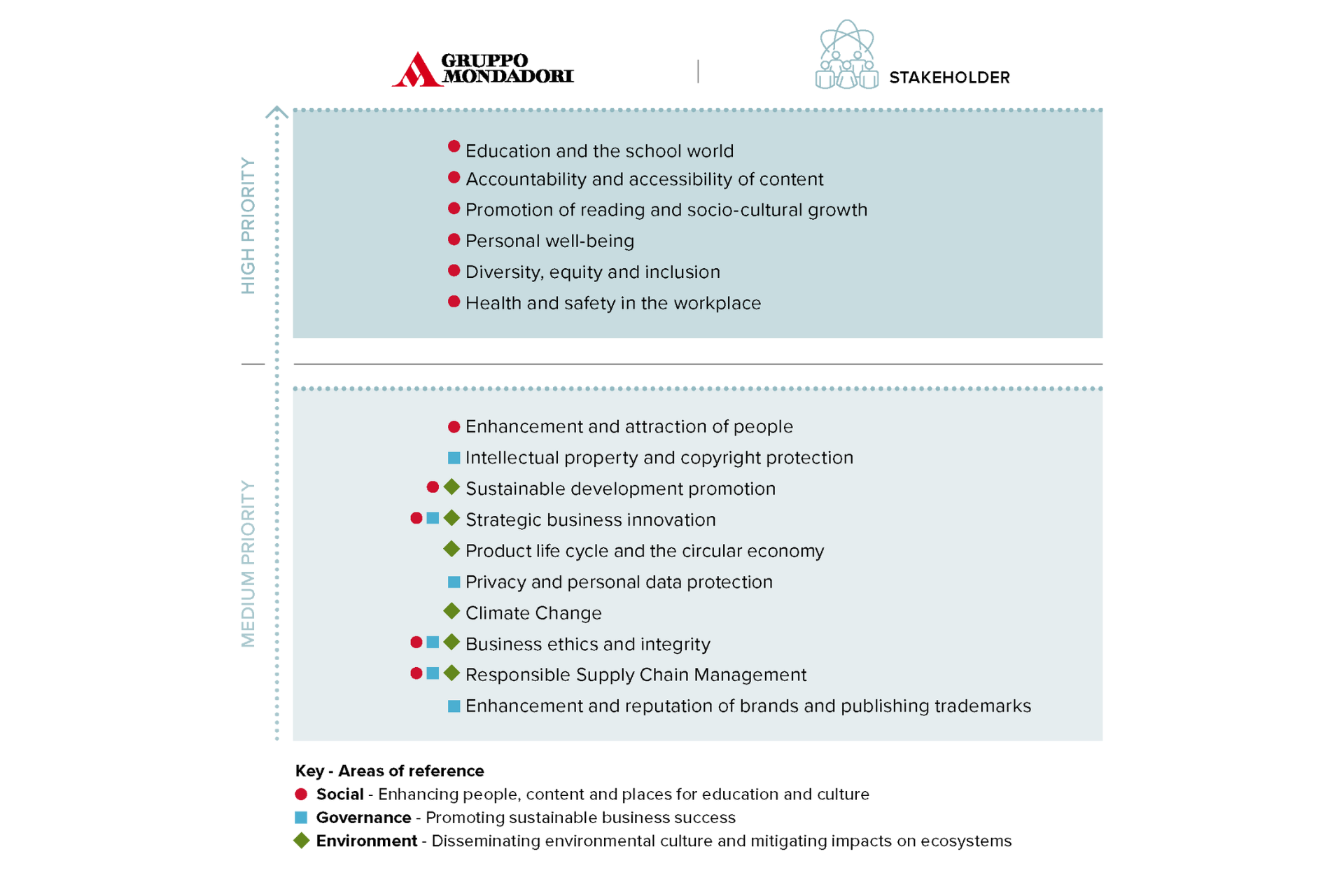The dialogue with our stakeholder
- Home
- Sustainability
- The dialogue with our stakeholder
- Our sustainability policy
- Our sustainability policy
Materiality analysis and stakeholder engagement
How can a publishing company be sustainable? This seemingly simple question constantly guides our reflection on corporate social responsibility.
The Mondadori Group periodically carries out a materiality analysis process, in order to identify the elements of strategic interest in the field of sustainability and ensure the correct presentation and understanding of the Group’s activities, its performance, results and the impacts generated.
Specifically, the year 2023 saw an update of the materiality analysis, which, in light of the evolution of guidelines on sustainability reporting, focussed on identifying the positive and negative impacts generated by the Group on the environment, economy and people, including human rights.
This is based on five phases:
a) mapping of relevant stakeholders;
b) identification of current and potential negative and positive impacts generated by the Group directly and through its value chain, in line with the reference industry trends and the priorities identified in the Sustainability Plan;
c) assessment of the impacts identified, through internal and external stakeholder engagement activities;
d) prioritisation of sustainability topics on the basis of impact assessments;
e) identification of material topics and their approval.
Prioritization of identified sustainability issues in relation to impacts, through internal and external stakeholder engagement activities
In order to assess the impacts the Group generates towards the outside, specific internal and external stakeholder engagement activities were carried out.
These listening opportunities have seen the active involvement of company management (the Steering Committee and the Internal Sustainability Committee), employees and equally important interlocutors, including teachers and customers of our bookshops, suppliers and financial analysts and investors – identified according to criteria of strategic relevance for the Group both in business and sustainability.
The engagement occurred with the administration of an on-line questionnaire in December. More than 4,900 completed versions were submitted, specifically approximately 1,970 by the teaching staff and more than 2,100 by customers and readers, thanks to the relationship the Group has developed over time with these categories in light of their crucial importance.
The stakeholders involved were asked to identify, in line with their own expectations and needs, which impacts generated by the Group they consider more or less relevant.
The material topics for the Group and its stakeholder
